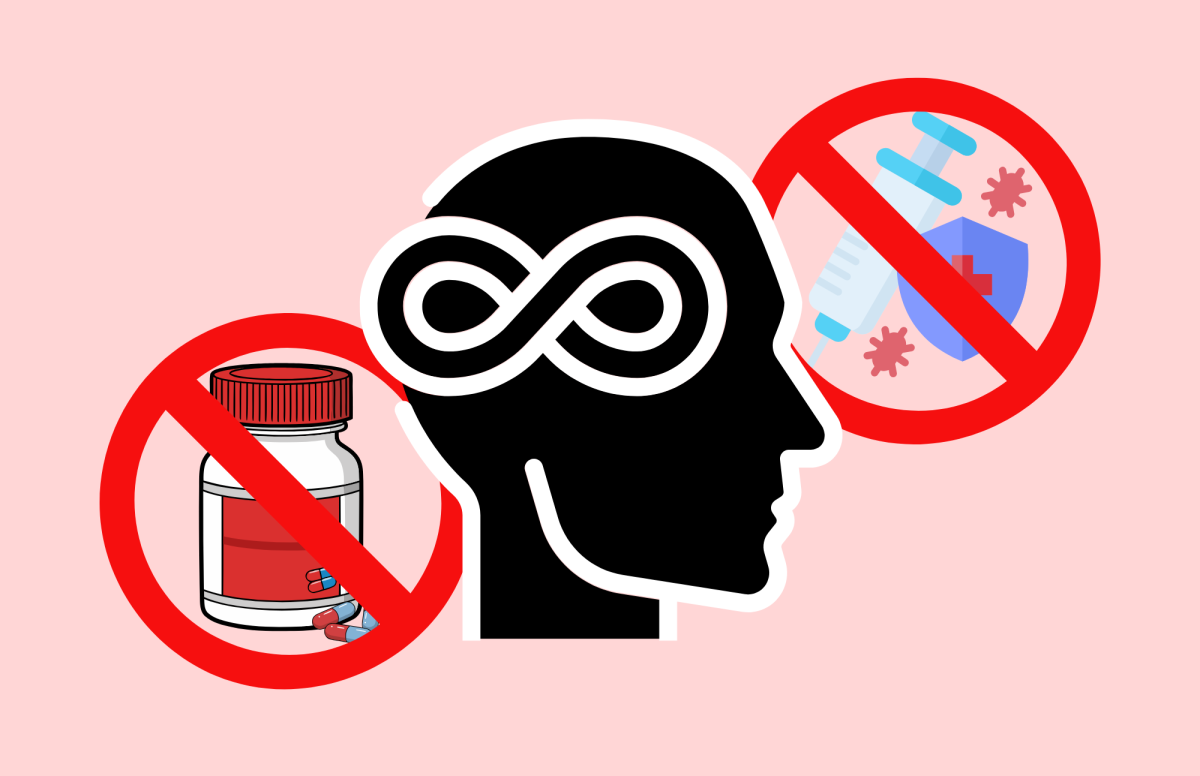COVID-19 outbreak leads to shortage in albuterol inhalers
According to the CDC, one in 13 Americans suffer form asthma. Because of COVID-19 America is experiencing a shortage of albuterol.
The American College of Allergy, Asthma and Immunology (ACAAI) has reported that some areas around the country are experiencing shortages in albuterol inhalers. The shortage is a result of an increased demand since hospitals are using inhalers rather than nebulizers to treat COVID-19 patients due to lower risk of spreading the virus through inhalers.
Albuterol is a bronchodilator, a medication that relaxes muscles in the airway, that is important for those who suffer from asthma.
“Albuterol inhalers provide quick-relief of symptoms of asthma exacerbation such as wheezing and shortness of breath,” nurse Rita McLafferty said. “Sometimes it is also used to prevent an exacerbation, such as before strenuous exercise. This is imperative during an asthma attack.”
According to the Centers for Disease Control and Prevention (CDC) one in 13 Americans have asthma, but not all of them fully depend on albuterol. Other asthma treatments include other bronchodilators, steroids and anti-inflammatory medications. Senior Emily Panasci uses Qvar, a steroid medication.
“When I am under good control of my asthma my asthma medicine will last me a long time. I take my Qvar as a preventative. I only use my albuterol when I am having a hard time breathing. As long as I am not having a hard time breathing, I don’t use my albuterol, I just use my Qvar,” Panasci said.
Several other asthma sufferers, however, depend on albuterol to prevent and treat asthma attacks.
“It is very important to have an inhaler with me at all times because my asthma is very unpredictable. I usually use it around six to eight times a day,” junior Quinn Rogan said.
While the shortage hasn’t significantly impacted the St. Louis area, Rogan has been proactive with her treatments.
“With the albuterol shortage happening, we have stocked up on inhalers, but it is very expensive,” Rogan said.
Sophomore Dylan Vorbeck has encountered the shortage himself, and while it doesn’t greatly concern him now, he worries about the future.
“I have tried to get some recently but the doctor just said they don’t have any. I have a lot of older inhalers, but I’m continuing to use more and more. I should be fine until summer if I stretch what I have now,” Vorbeck said.
Because asthma is a respiratory condition that causes airways to become constricted, people who have it are at a higher risk for severe illness if they contract COVID-19.
“I feel a little concerned [about being at a higher risk] only because I’m terrified of suffocation, and the virus makes some people feel that way,” Rogan said. “As there are more cases every day my concern becomes bigger.”
To prevent infection of the virus, the CDC has recommended high-risk individuals practice social distancing and wash their hands often. Panasci, Rogan and Vorbeck have all embraced the CDC’s advice.
“Because I am at higher risk for Coronavirus, I have been staying home and avoiding going to the grocery store to avoid exposure. I have also taken preventative measures for my asthma ensuring that I take my inhalers to help prevent the severe respiratory issues that could occur if I get the Coronavirus,” Panasci said.
However, the albuterol inhaler shortage is not expected to be severe. On April 8 the first generic albuterol inhaler was approved by the U.S. Food and Drug Administration which is expected to increase the country’s supply of the inhalers.
If people with asthma do encounter the shortage, the ACAAI has emphasized that they should not panic. McLafferty and nurse Kristen Emms are also available to students via email to answer any health related questions they may have.
“I would suggest that students [with asthma] take a proactive approach and check to see how many doses are left in their inhalers and try to obtain a refill from their pharmacy, if necessary, before shortages in our area occur and call their physician for an alternative fast acting medication,” McLafferty said. “The most important thing that students with asthma can do, is use their daily ‘control’ medications. This includes whatever their physician has prescribed which may include a daily use ‘control’ inhaler (not albuterol) and/or seasonal allergy medications. It is very important to use daily asthma/allergy medications during spring allergy season.”
Your donation will allow our student journalists to continue their work. You may become a PATRON by making a donation at one of these levels: White/$30, Black/$50, Gold/$100. Patron names will be published on the website and once per quarter on our social media accounts.









































